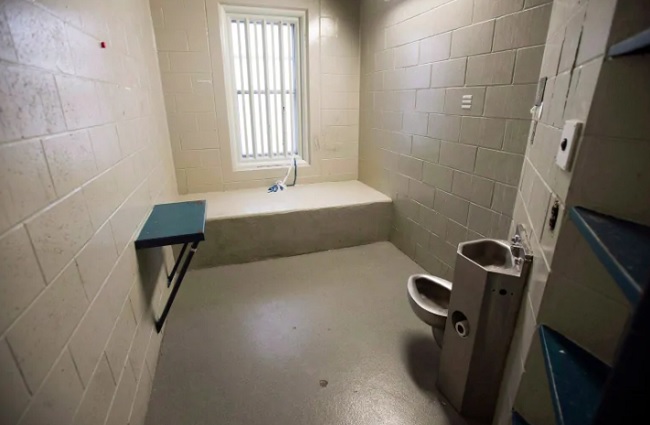A court has ruled Canada’s penitentiary service will have to pay tens of millions of dollars for holding inmates it knew were mentally ill in solitary confinement. In what the service calls administrative segregation, inmates are isolated in very small cells for 22 or more hours a day.
This is the third court to rule that this practice violates Canada’s Charter of Rights and Freedoms and the government is currently considering legislation to change administrative segregation.

Cells are small and inmates may be kept in them for more than 22 hours a day. (Frank Gunn/Canadian Press)
Two constitutional rights violated
The current case, was a class action lawsuit about the treatment of at least 2,000 mentally ill inmates. Ontario Superior Court Justice Paul Perell ruled that their treatment violated two sections of the charter. Section 7 guarantees the right to life, liberty and security of the persons and section 12 guarantees against cruel and unusual punishment.
“The remedy was first to award $20 million in damages payable by Canada,” said James Sayce, the lawyer who argued the case. “And the judge ordered that those $20 million should be reinvested into mental health services in prison.”
In addition, the individuals will be entitled to their own compensation to determined later.
‘Systemic nature of the wrongdoing…is quite historic,’ says lawyer
The case is significant for several reasons. Sayce says there has never been a charter damages award anywhere near this big. It’s the first time in a class action that constitutional damages have been awarded and the first time that a cruel and unusual punishment ruling has been found in a class action.
“Just the systemic nature of the wrongdoing by the Canadian government that was found by the judge is on its own quite historic.”
The government has the right to appeal the verdict.
Civil liberties organizations and inmates’ rights advocates have long denounced the use of solitary confinement saying its use is far too widespread and it can cause mental illness.

Lawyer James Sayce argued the case and explains the judge’s decision.
Listen






For reasons beyond our control, and for an undetermined period of time, our comment section is now closed. However, our social networks remain open to your contributions.